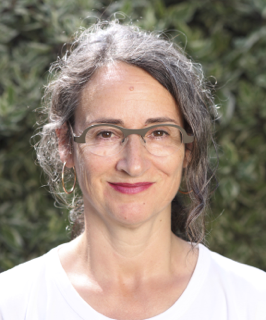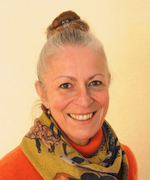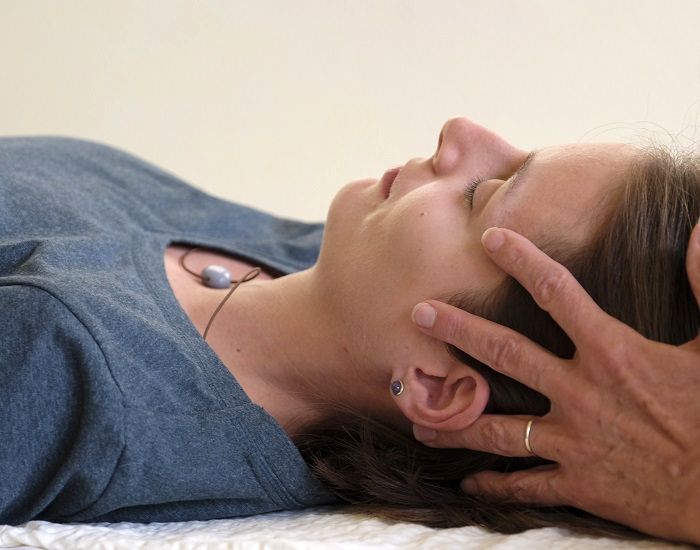Training biodynamic craniosacral therapy, level 12
In levels 11-13, on the one hand, new content is taught and, on the other hand, the knowledge from previous levels is continuously integrated and networked. The knowledge and experience in the biodynamic field of craniosacral therapy are integrated into a larger whole.Behind the selective and precise observation of anatomy, physiology and embryology, the power of the breath of life increasingly appears, which sustains the whole complexity of living and dying, the complexity of health and illness. In the field of biodynamic craniosacral therapy, the breath of life is a force that unites both aspects, all aspects. We begin to sense and experience that human beings are not buffeted by this force, but are sustained by it. Two aspects central to the fabric of life are the cardiovascular system and the intestines. Metaphorically, both systems could be seen as supply and disposal systems. The anatomical expression and embryological growth gestures of both systems further guide our perception and understanding toward the breath of life. In addition to turning to the two guiding themes, we organize and clarify embryological knowledge already encountered in previous levels.
Course contents
- renewed study of the autonomic nervous system, in particular the limbic system in connection with the topic of pediatric treatments
- development of the placenta
- Chorion laeve and chorion frondosum
- attachment theory according to Bolby
- Denver developmental plan
- Embryology of the formation of the head bones
- The cranial bones at birth
- Gross motor, fine motor motor development of the first 12 months
- Cognitive development of the first 12 months
- Linguistic development of the child
Course aims
The participants- remember earlier and in other contexts conveyed contents concerning the autonomic nervous system especially the limbic system and relate these contents to the encounter and work with children
- delve into the embryology of umbilical and placental development; understand the developmental stages of the umbilicus and placenta and how we, as a future human being, find and shape connection to the environment in the emryonic period, as well as how the embryological environment (placenta) simultaneously responds to the need for connection.
- deal with attachment theories according to Bolby and link what he and his team have formulated with the knowledge about bonding from the 8th level of education and the polyvagal theory, which proves our orientation towards social contacts from a third and different perspective.
- acquire knowledge and understanding of the development of the cranial bones
- know and understand the diversity of the cranial bones at birth and are enabled to apply the acquired knowledge in practice
- know and understand the growth of the child on the cognitive, motor and linguistic level in the first year of life
- recognize and know about motor, cognitive and linguistic possibilities of the child in the first year of life apply the students after the 12th level in their practice
Target group
Participants of the biodynamic craniosacral training of the School for Craniosacral Therapy Kiental.Remarks
40 hours of education/training, EMR/ASCA compliant.We reserve the right to change the teaching team in special situations.
Course Instructor

Anath EICHENWALD
Basic training Physiotherapist, basic knowledge in movement pedagogy. Many years of experience in different dance and movement forms. Practice for craniosacral therapy in Basel for babies, children and adults. Training in craniosacral therapy with Friedrich Wolf at Kientalerhof. Cranio teacher training with Liliane Fehlmann and Friedrich Wolf. Supervisor CranioSuisse.

Liliane FEHLMANN-GASENZER
Basic training, Further Education, Tronc Commun Principal of the ISBCT Kiental, lecturer at the ISBCT Kiental, practice for craniosacral therapy in Lenzburg with babies, children and adults, supervisor Craniosuisse and supervisor OdAKT, communication and process work, graduate training and group leader training at the Gesellschaft für Idiolektik (GIG) in Würzburg.
Course costs
CHF 1280 (excl. accommodation, meals and tourist tax)
Personal advice

Tanja Oesch
Course management Craniosacral Wetzikon, Tronc Commun Wetzikon, Lymphatic Drainage, Ayurveda Nutrition and others.
Main Number: +41 33 676 26 76 | Direct Number: +41 78 850 40 84 (Mo-Fr, 08:30-10:45 Uhr) | E-Mail: tanja.oesch@kientalerhof.ch
